Dangers of Non-Distilled Water can confuse new parents faced with many choices and potential missteps. There’s a lot to learn, and knowing what exactly to do can be challenging.
You might think taste is the only difference between distilled and non-distilled water, but it’s more complex. Using non-distilled water for your baby’s formula can expose them to water-related diseases and put them at risk.
This article explains the importance of using distilled water for infant formula. It also guides you on how to avoid non-distilled water.
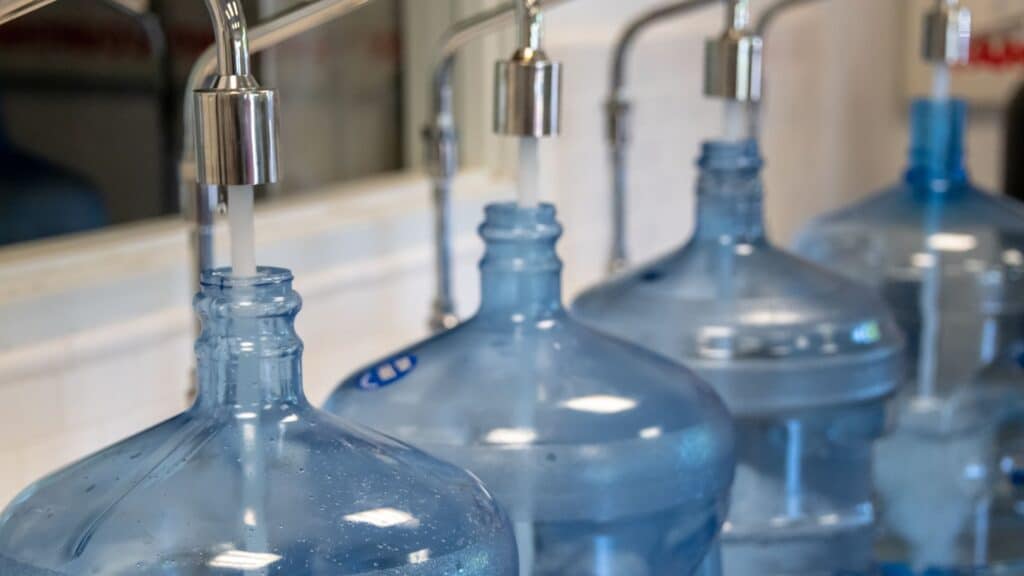
Understanding the Risks when Using Non-Distilled Water
Many people believe tap water is safe for mixing baby fuel, but this isn’t always true. Tap water may contain dissolved minerals and excess fluoride, which can lead to dental fluorosis. This condition causes faint white lines or streaks on the teeth.
The American Academy of Pediatrics states that drinking water with high fluoride levels can lead to tooth decay. Fluoride supplements and fluoridated water should be avoided to prevent dental fluorosis. It is recommended that parents use low fluoride bottled water or distilled water to prepare formula.
Water safety should be a top priority. You should test tap water regularly to meet the Centers for Disease Control standards. Using safer alternatives to non-distilled water can significantly reduce risks from water-borne diseases and dangers of non-distilled water . This contributes to a secure and healthy foundation for your baby’s growth and development.
Risks of Using Non-Distilled Water for Baby Formula
When it comes to using non-distilled water for baby formula, there are many risks that must be considered.
1. Contamination with Harmful Substances
A recent study found that more than 200 contaminants are present in tap water and bottled water. The study also showed that some of these contaminants are potentially harmful to babies and young children.
Some of these contaminants include lead, arsenic, pesticides, bacteria, viruses and industrial chemicals. Using non-distilled water for your baby’s formula could expose your child to harmful substances. This exposure could cause long-term health issues such as cancer or neurological damage.
2. High Mineral Content
You should use distilled or purified water to make baby formula. It has fewer minerals and impurities than non-distilled or unfiltered water.
The minerals in your drinking water can affect how well your baby absorbs nutrients from their food. If there are high levels of minerals in their body, they may not be able to absorb all the nutrients from their food. This could lead to nutritional deficiencies and other health issues down the road if left untreated.
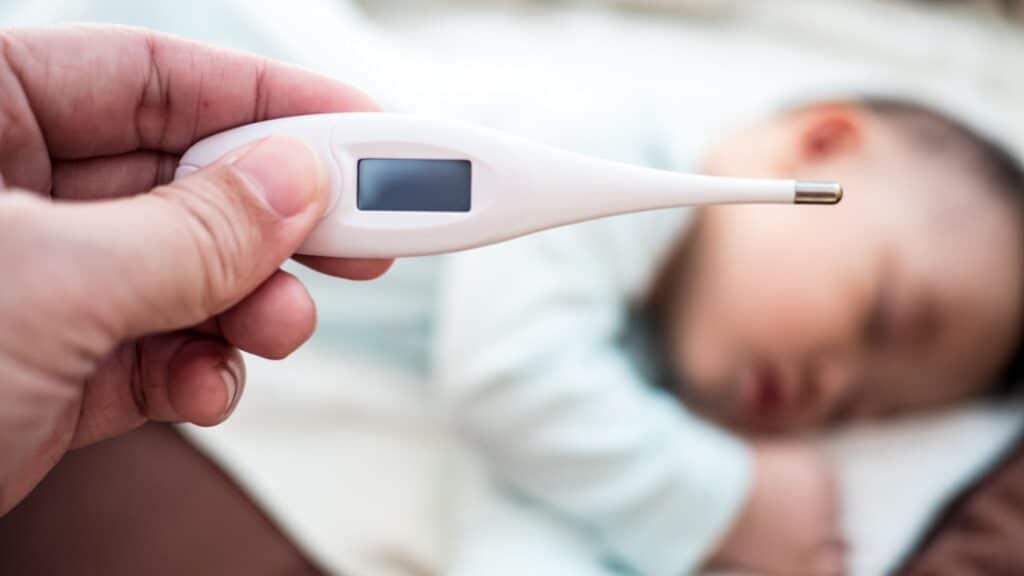
3. Risk of Infections and Illnesses
The risk of infection and illness is a major concern when using non-distilled water for baby formula. The first problem is that the water is often contaminated with bacteria, viruses and other microorganisms. The organism or virus may be harmful to your baby or even cause death.
The second problem is that many medications are not stable in non-distilled water. This can cause the medication to break down, which means it will no longer be effective in treating your child’s illness or disease.
4. Impact on Baby’s Growth and Development
According to a nationwide children’s hospital, it is important to use only distilled water to prepare infant formula. Non-distilled water can impact the growth and development of your baby.
Commonly Used Water Sources
There are three types of water commonly used for preparing baby formula: tap water, bottled water, and distilled water.
Tap Water
Tap water is a widely used option for preparing baby formula, especially in areas with limited access to other water sources. However, one major disadvantage of using tap water is that it may contain harmful contaminants such as lead, chlorine, and bacteria that can be dangerous for a baby’s health. It’s essential to ensure that the tap water in your area is safe for babies by checking with your local water authority or health department. If you’re unsure about the safety of the tap water, boiling it for at least one minute before using it to mix infant formula is recommended.
Bottled Water
Bottled water is another option for formula preparation, but it’s important to choose low fluoride bottled water that’s labeled safe for babies. However, bottled water can be expensive and not as convenient as tap water.
When it comes to choosing bottled water, there are a few things you should remember.
Check the Label: Always check the label to ensure that the bottled water meets safety standards and has been purified, distilled, or filtered.
Look for Seals: Some bottled water may have seals or certifications indicating that it meets safety standards. Look for these seals to ensure that the water is safe.
Avoid Reusing Bottles: Never reuse plastic water bottles, as this can increase the risk of contamination.
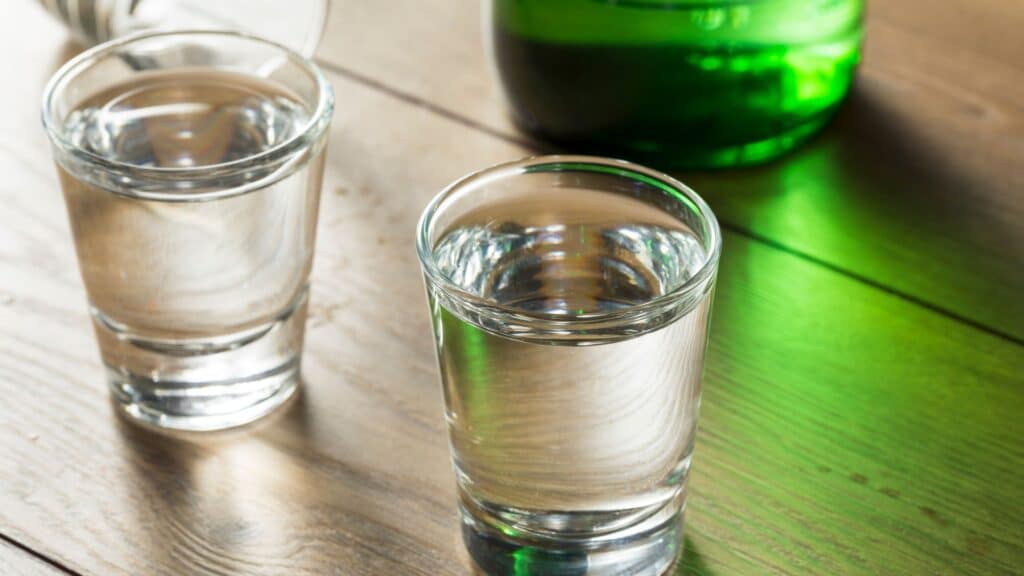
Distilled Water
Distilled water is the best choice for preparing your baby’s formula because it is free from harmful impurities and minerals. The American Academy of Pediatrics recommends using distilled water for formula, especially for newborns and babies under six months old. However, it’s essential to ensure that the distilled water is intended for human consumption and remove dangers of non-distilled water .
Strategies for Ensuring That the Water Used for Baby Formula Is Safe
There are several strategies you can use to ensure that the water used for baby formula is safe. Here are some of the most effective ones:
Boil Tap Water
Boiling cold tap water or boiling tap water for at least one minute is recommended to make it safe for your baby to consume. To make boiling water easier, you can use an electric kettle or microwave oven. This is particularly important for liquid concentrate formulas as adding a few drops of boiled water to the concentrated formula can help kill any bacteria or viruses.
Check the Water Quality
When making baby formula, it’s crucial to use clean and safe water. Consult your local water authority or health department to get information about the quality of tap water in your area.
Use Low-Fluoride bottled Water
If you are using bottled water, choose low fluoride bottled water labeled safe for babies. Too much fluoride can be harmful to a baby’s health and can cause dental fluorosis, so it’s important to pay attention to how much fluoride is in the water.
Invest in a Water Filtration System
A water filtration system can be a good option to remove impurities, including fluoride, and other contaminants from tap water. This can provide you with peace of mind and ensure that the water you are using to make baby formula is safe for your baby.
Consider Using Ready-to-Feed Formula
If you’re concerned about the safety of the water in your area or the quality of bottled water, you may consider using ready-to-feed formula as an alternative to using tap or bottled water for mixing baby’s formula powder. Ready-to-feed formula comes pre-mixed and doesn’t require water, which can provide peace of mind and convenience.
Use Distilled Water
As mentioned earlier, distilled water is the best option for preparing baby formula as it is free of impurities and minerals that can be harmful to your baby’s health.
Benefits of Using Distilled Water for Baby Formula
The benefits of using distilled water for baby formula are numerous.
- Reduced Risk of Contamination: Distilled water is pure H2O, with no chemicals or minerals added, only what’s naturally present in the earth. It’s also free from bacteria, viruses, and other microbes that can be found in regular tap water.
- Consistent Quality: Distilled water is consistent in quality, ensuring that each bottle of formula is made with the same quality of water.
- Easy to Find and Use: Distilled water is available at most grocery stores and other retailers, so you don’t have to go out of your way to find it. Plus, it comes in handy bottles that are easy to store and use on the go!
The FDA has set standards for water bottled in the United States. These standards ensure the quality of the water, including the removal of dangers of non-distilled water . The FDA regulates bottled water and mandates that it meets or surpasses their standards before vendors can sell it to consumers.
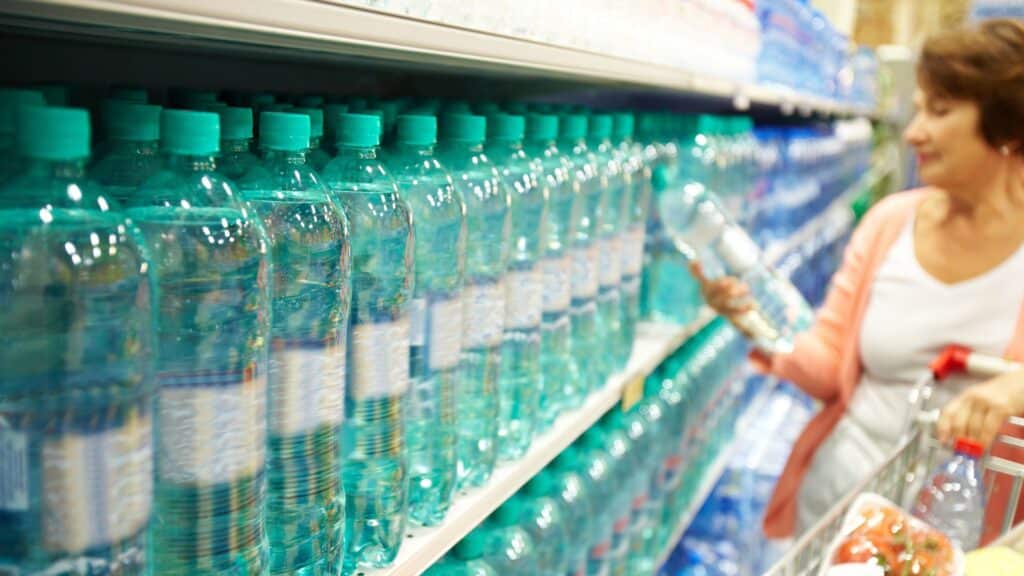
Alternatives to Non-Distilled Water for Baby Formula
When it comes to preparing baby formula, it’s crucial to use clean and safe water. It also removes the dangers of non-distilled water, which can confuse new parents faced with many choices and potential missteps. There’s a lot to learn, and knowing what exactly to do can be challenging.. Using non-distilled water can expose your child to harmful contaminants, high mineral content, infections, and illnesses that can lead to long-term health issues. So, what are the alternatives to using non-distilled water?
1. Boiled Tap Water
Boiling cold tap water for at least one minute is recommended to make it safe for your baby to consume. This method kills bacteria, viruses, and other microbes present in the water, making it a healthier option than unboiled tap water. To make this process easier, you can use an electric kettle or microwave oven. However, please ensure that the tap water in your area meets the necessary safety standards before using it for boiling.
2. Low-Fluoride Bottled Water
Choosing low-fluoride bottled water labeled safe for babies can be a better option than using non-distilled water. As mentioned earlier, too much fluoride can be harmful to your baby’s health and can cause dental fluorosis. Check the label to ensure the bottled water meets safety standards and has been purified, distilled, or filtered. Also, look for seals or certifications indicating that the water meets safety standards, and avoid reusing plastic water bottles, as this can increase the risk of contamination.
3. Water Filtration System
Investing in a water filtration system is another alternative for removing impurities, including fluoride, and other contaminants from tap water. This provides peace of mind and ensures that the water you are using to make baby formula is safe for your baby. Make sure you choose a water filter that is certified to remove contaminants relevant to your local water source.
4. Ready-to-Feed Formula
If you’re concerned about the safety of the water in your area or the quality of bottled water, you may consider using ready-to-feed formula as an alternative to using tap or bottled water for mixing baby’s formula powder. Ready-to-feed formula comes pre-mixed and doesn’t require water, which can provide peace of mind and convenience. Although it can be more expensive than powdered formula, this option can save you time and effort while ensuring that your baby consumes safe and hygienic formula.
By exploring these alternatives to non-distilled water, you can ensure that the water you use for your baby’s formula is safe and free from harmful substances. Remember to follow the instructions for mixing the powdered formula properly and store the mixed formula in a clean and sterile container in the refrigerator. When in doubt, always consult with your pediatrician for recommendations and guidance on providing your baby with the best nutrition possible.
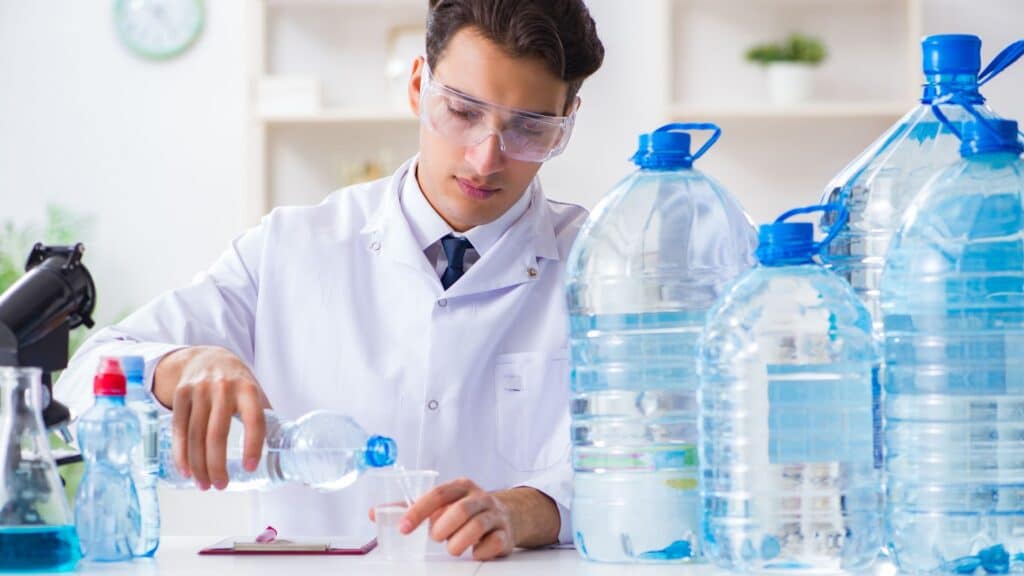
Conclusion
In conclusion, water safety should be a top priority for parents when preparing infant formula. Using non-distilled water for baby formula can expose infants to harmful contaminants, high mineral content, infections, and illnesses that can lead to long-term health issues.
It’s important to use low-fluoride bottled water or distilled water to avoid dental fluorosis and other health problems. Distilled water is the best choice because it’s free of impurities and minerals that can be harmful to a baby’s health.
Parents can protect their baby’s health by properly mixing powdered formula and storing it in a clean, sterile container in the refrigerator.
If you have any questions, please feel free to leave a comment below and I will be happy to answer them.



